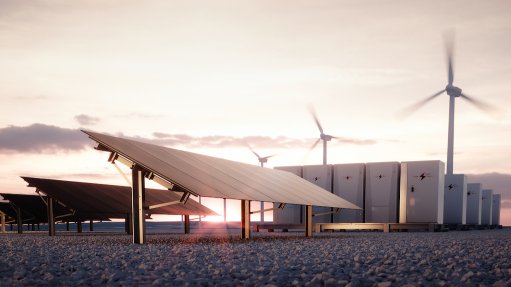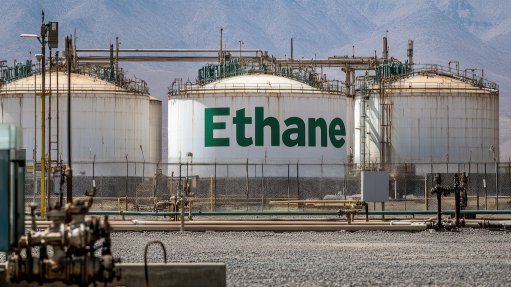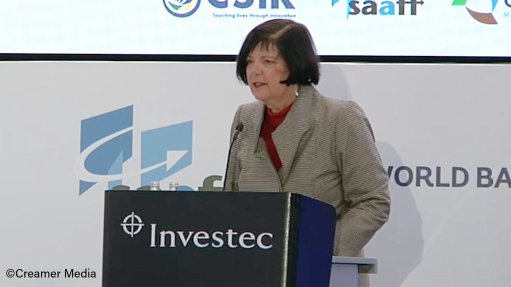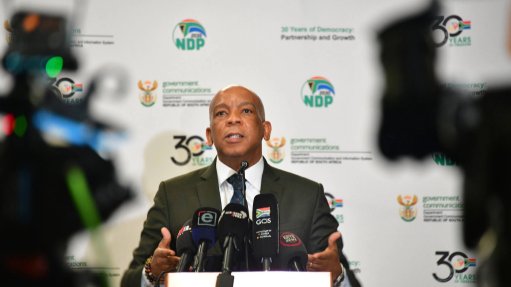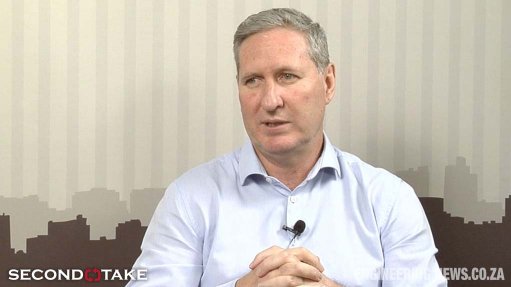COP27 draft leaves out pledge to phase down all fossil fuels
Countries negotiating at the climate summit in Egypt are on track to reject calls for phasing down the use of all fossil fuels, snuffing efforts by India and key developed nations to target oil and gas as well as coal in an overarching deal at COP27.
The Egyptian presidency published the first draft of its so-called “cover decision” and largely kept last year’s pledge made at Glasgow to “accelerate measures towards the phase down of unabated coal power” and phase out fossil fuel subsidies. It also stuck with a commitment to keep global warming to 1.5 ºC. It highlighted that countries are currently falling well short on meeting the climate finance needs of developing countries.
The draft, which is still subject to revisions during the week, will likely come as a disappointment for countries who were pushing for a phase down of all fossil fuels, not just coal. India led the push, but received backing from the US, European Union and the UK, though the latter countries wanted to make sure that phasing down coal in particular was still highlighted.
There was also likely to be widespread opposition to such a move. Saudi Arabia’s energy minister, Prince Abdulaziz bin Salman, said in an interview last week that the kingdom would be very unlikely to support an agreement that included the phase down of oil.
If the language sticks, it could step up a fight, exposing deep divisions between some of the world’s largest oil producers and climate vulnerable countries eager for a rapid pivot from fossil fuels.
The preliminary text has already drawn swift condemnation from activists pushing for a harsh stance against fossil fuels.
“Acknowledging only the need to phase down coal while ignoring oil and gas is hugely problematic. This predatory delay is out of line with the science and with 1.5°C,” said Collin Rees, campaign manager at Oil Change International. “At a COP shaped by more than 600 fossil-fuel lobbyists roaming the halls, parties fighting for progress must push back against weak language that allows the fossil fuel industry to continue its deadly expansion.”
In one notable section, the draft sees countries call on multilateral development banks to do more to scale up climate finance. They should increase the amount of money provided by three times by 2025 “without exacerbating debt burdens” on national budgets, the document said.
The push aligns with increasing calls from MDB member nations, including the US, for an overhaul of the so-called Bretton Woods institutions to meet emerging threats such as global warming. Last week, Barbados Prime Minister Mia Mottley called for institutions to pursue reforms that would unlock more finance for climate pledges.
The document also for the first time acknowledges the energy crisis gripping the world, as concerns about fuel needs prompt countries to embrace more coal-fired power. “The unprecedented global energy crisis underlines the urgency to rapidly transform energy systems to be more secure, reliable and resilient” as well as “the need to accelerate clean and just transitions to renewable energy,” the draft said.
Countries would also express their concern with the impacts of the crisis on nations’ ability to meet their Paris Agreement carbon-cutting commitments and emphasize “the importance of avoiding backsliding.”
Conclusions on the Sharm El-Sheikh summit’s key agenda items, like the issue of loss and damage would also be included once finalized, the draft said. The conference is due to end on Friday, but previous annual meetings have frequently overrun.
There are concerns over the number of large outstanding issues that still need to be solved.
“It doesn’t feel like one single coherent vision pushed by the presidency but more a text that weaves together lots of ideas they’ve heard -- many will get shot down from various groups,” said Tom Evans, a climate policy advisor at think tank E3G. “There’s lots in there that all sides will dislike.”
Comments
Press Office
Announcements
What's On
Subscribe to improve your user experience...
Option 1 (equivalent of R125 a month):
Receive a weekly copy of Creamer Media's Engineering News & Mining Weekly magazine
(print copy for those in South Africa and e-magazine for those outside of South Africa)
Receive daily email newsletters
Access to full search results
Access archive of magazine back copies
Access to Projects in Progress
Access to ONE Research Report of your choice in PDF format
Option 2 (equivalent of R375 a month):
All benefits from Option 1
PLUS
Access to Creamer Media's Research Channel Africa for ALL Research Reports, in PDF format, on various industrial and mining sectors
including Electricity; Water; Energy Transition; Hydrogen; Roads, Rail and Ports; Coal; Gold; Platinum; Battery Metals; etc.
Already a subscriber?
Forgotten your password?
Receive weekly copy of Creamer Media's Engineering News & Mining Weekly magazine (print copy for those in South Africa and e-magazine for those outside of South Africa)
➕
Recieve daily email newsletters
➕
Access to full search results
➕
Access archive of magazine back copies
➕
Access to Projects in Progress
➕
Access to ONE Research Report of your choice in PDF format
RESEARCH CHANNEL AFRICA
R4500 (equivalent of R375 a month)
SUBSCRIBEAll benefits from Option 1
➕
Access to Creamer Media's Research Channel Africa for ALL Research Reports on various industrial and mining sectors, in PDF format, including on:
Electricity
➕
Water
➕
Energy Transition
➕
Hydrogen
➕
Roads, Rail and Ports
➕
Coal
➕
Gold
➕
Platinum
➕
Battery Metals
➕
etc.
Receive all benefits from Option 1 or Option 2 delivered to numerous people at your company
➕
Multiple User names and Passwords for simultaneous log-ins
➕
Intranet integration access to all in your organisation






